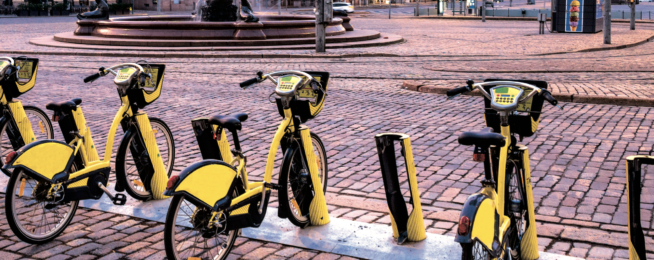Electric scooters are a failure when it comes to providing health benefits to individuals and environmental benefits to the community, a new report has found.
There are no measurable exercise benefits, and the trips on scooters are mostly replacing a walking trips rather than reducing emissions-generating trips.
The findings are in a report from the European Environmental Agency, "The first and last mile — the key to sustainable urban transport”.
"Electric scooters do not provide positive health effects in the way that active modes of transport do,” according to the report. "To the extent that electric scooters replace walking (and cycling), they will cause a loss of societal welfare in this respect.”
The authors say that if a scooter it replaces a motorcycle or a car trip, the environment and health effects are positive, but if it replaces a trip by foot or by bike, the situation gets worse.
Studies have found that the environmental impacts directly linked to the use of shared electric scooters are relatively small and lower than for most other motorised modes of transport. However, the negative impacts linked to materials and manufacturing are substantial, especially if the lifetime of the shared scooter is less than two years, which they mostly are.
Overall shared electric scooters are more likely to result in an emissions increase rather than decrease. These findings apply to other fully electrified micromobility vehicles such as electric skateboards and segways.
The report looks at a number of technologies and approaches to tackle the first mile-last mile-only mile (F/L/O) problem, a solution to which it considers is the key to sustainable urban transport.
"Cycling is another transformative option”, the report says. “Various cities in Europe have shown commuting by bicycle can become the dominant mode of transport to and from work.
"Cycling is also a highly efficient F/L/O mile option, complementing train travel.
"Recent research suggests that electrically assisted bikes (Pedelecs) also belong in the active mobility category as they require a certain activity level. They open active mobility to a wider group of people and encourage longer commutes by bike.”
The report says that transport can also be an important source of health benefits for society when active modes are used, of which cycling and walking are the main ones.
"Each kilometre that is cycled or walked provides health benefits to the individual and to society. The latter includes reduced costs for the healthcare system and reduced absence from work due to illness.
"The reason behind the benefits of active transport is that people need physical exercise and that modern lifestyles often do not provide many opportunities for that.
"As a consequence, each extra kilometre that is travelled by active modes provides societal benefits, independently of whether this kilometre was previously travelled by bus or car or is a new kilometre."
You can read the full study here.
Related: New study predicts massive increase in bike riding
Become our friend
Find out more about Bicycle Network and support us in making it easier for people to ride bikes.


